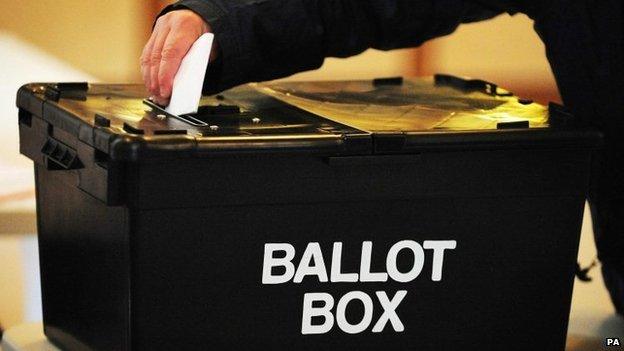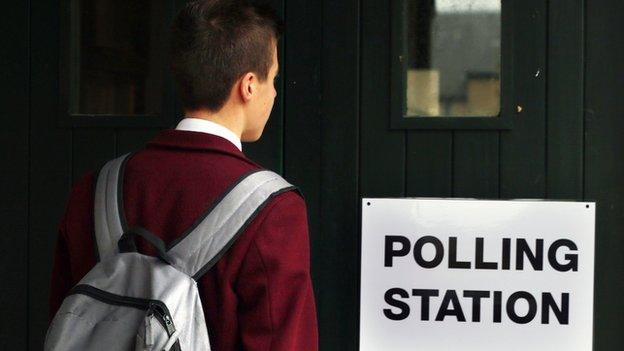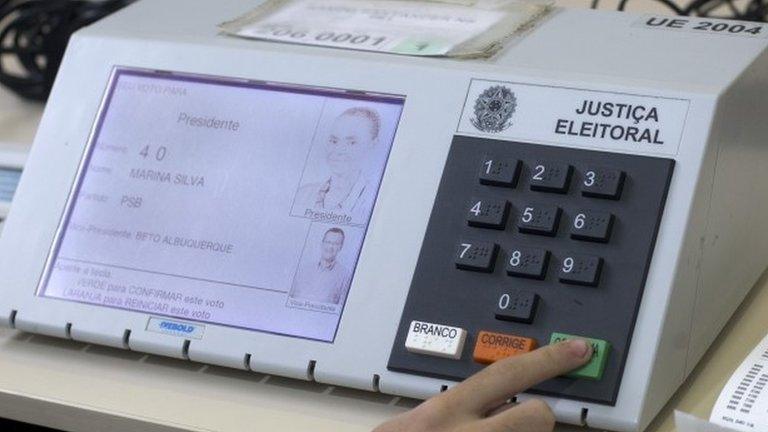General election 2015: Youth vote 'could be key to win'
- Published

Up to three million young people have not decided how to vote in next year's general election, a think tank says.
About 44% of 18 to 25-year-olds have yet to decide which party to back on 7 May, research by Populus, for left-leaning think tank Demos, suggested.
Demos said the party that could tap into this pool of young voters "may just win the keys to Downing Street".
The survey of more than 1,000 18 to 25-year-olds also found parties needed to use social media, external more effectively.
Demos said Skype or FaceTime MP surgeries, hustings via Facebook and online voting could all boost youth political participation.
'Jargon-free' message
The research found more than three quarters (77%) intended to vote - but only 30% of young women said they were interested compared with 48% of their male peers.
Asked to name the issues they were most concerned about, 69% included the cost of living, 62% affordable housing, 58% unemployment and the same proportion said the NHS.
Exactly half put online privacy among their main concerns - more than the environment (45%), immigration (43%), tax avoidance (37%) or Britain's future in the EU (34%).
The researchers combined the polling with focus groups asking young people their views on politicians and what would make them more likely to vote.
Almost one in five (19%) said celebrity endorsement would make them more likely to vote, while (18%) said it would make them less likely.
More than half (56%) said they would be more likely to vote if there were more working class MPs, while fewer (31%) cited more women MPs as a factor, and an even smaller number (27%) cited ethnic minority MPs.
Demos head of political participation and report author Jonathan Birdwell said: "Our research shows that there are up to three million young voters who are up for grabs in next year's election.
"The political party that can tap into this pool may just win the keys to Downing Street. Young people are currently turned off voting because politicians aren't offering them credible, positive policies that address the issues they're most concerned about.
"But the further challenge for politicians is to communicate these policies to young people in the spaces where they congregate, and in jargon-free language they understand. Social media must be central to voting outreach."
'Talk to them'
In the long-term, cementing the youth vote requires bigger reforms, he said.
He went on: "Young people think politicians are all the same: elite, white, men with expensive education. But this research shows the successful politician of the future will be from a working class background, born and raised in the area they represent, and accessible and down-to-earth on social media."
Moira Swinbank, chief executive of youth social action charity vInspired, which supported the report, said young people wanted information "in the space they communicate in".
But she said politicians should beware of using Twitter and Facebook to broadcast personal propaganda.
"If they really want to get young people voting for them, they need to talk to them," she said.
- Published8 December 2014

- Published23 September 2014

- Published24 December 2014
